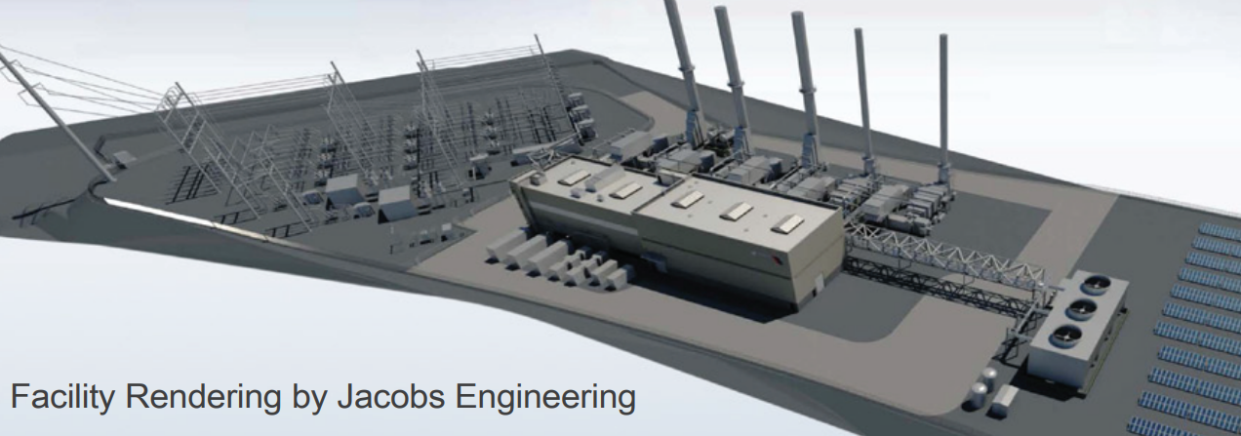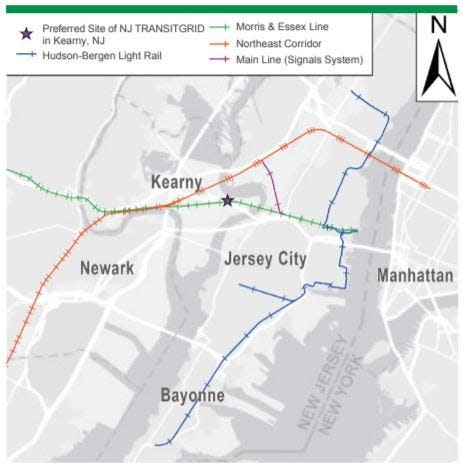NJ Transit's controversial Transitgrid project is canceled
Transitgrid — arguably the most controversial proposal in NJ Transit's portfolio of capital projects — has been canceled, according to three sources who were not authorized to publicly discuss the decision.
NJ Transit issued a press release Friday morning announcing the decision, saying it was not "financially feasible."
“Reallocation of the (microgrid central facility) funding not only supports these high-priority resiliency projects, it also ensures that good-paying, union construction jobs that this funding supports remain in New Jersey,” said New Jersey Department of Transportation Commissioner Diane Gutierrez-Scaccetti.
NJ Transit also said that since Transitgrid was initially designed, improvement to the parts of the affected power grid made the project "much less necessary."
The agency credited PSE&G's "significant investments in power grid resiliency."
History of the project
After Superstorm Sandy flooded the region in 2012 and led to shuttered transportation service, the project was originally developed to build a microgrid that would use a natural gas-powered plant to electrify some of the agency's rail lines in the event of a blackout. When not used during an emergency, NJ Transit could sell power to other railroads, like Amtrak. NJ Transit was awarded a $409.7 million federal grant for the project in 2014 through a Federal Transit Administration emergency response grant program.
The agency said $503 million in federal grant funding is being redirected to other Superstorm Sandy related projects. The Raritan River Bridge reconstruction between Perth Amboy and South Amboy will receive $240 million, the Long Slip Fill projects in Hoboken will get $88 million and that will help create additional train storage space in the event of flooding, and the Delco lead storage and inspection facility, which will also create more train storage space, will receive $175 million.

In October — six months after bids were due for estimates on construction of the microgrid facility — the FTA acknowledged to NorthJersey.com that NJ Transit had "engaged" the federal agency on the Transitgrid project, but wouldn't answer questions about whether it was about transferring the grant dollars to other eligible projects.
Environmental advocates cheer Transitgrid cancellation
Environmental advocates have swarmed NJ Transit's public meetings for the last several years to condemn the project and at times yelled at and made macabre comments to board members and staff.
On Friday, they rejoiced.
"This is a victory for the grassroots activists who never stopped pushing the Murphy administration to reject a scheme to place a new fossil fuel project near communities that have suffered from decades of industrial pollution," said Matt Smith, the New Jersey director of Food and Water Watch, among the groups that have fought the plan.
Anjuli Ramos-Busot, director of the New Jersey Sierra Club, thanked the Murphy administration for reallocating the money.
"We are glad that this decision recognizes that gas is not the future for New Jersey and hope that we can continue to move in the right direction toward renewable energy alternatives, battery storage, and incorporating climate resilience into everything that we do," Ramos-Busot said. "This decision is a win for the local communities who are overburdened with air pollution, particularly Kearny, and the support coming from these redirected funds will better prepare our state for the impacts of climate change."

To address advocates' concerns, transit officials announced in 2020 they would slow down the procurement process and include a stipend to bidders to come up with plans that would achieve 100% renewable energy "to the extent that it’s technically feasible," NJ Transit President and CEO Kevin Corbett said at that time, but did not preclude the use of gas in the near-term.
“While the Transitgrid procurement process provided valuable knowledge for the future, it showed the funding would be better used to protect these other critical points around the state. This determination was reinforced by New Jersey’s utilities’ work to strengthen the state’s power grid since Superstorm Sandy," said Corbett.
The project was a frequent sticking point with Gov. Phil Murphy, who has frequently cited his ambitious clean energy goals and Energy Master Plan that aims to put New Jersey on the path to 100% renewable clean energy by 2050.
The microgrid had supporters in the labor and trades organizations who saw it as an opportunity for work and increasing the resiliency of the state's transportation system.
This article originally appeared on NorthJersey.com: NJ Transit Transitgrid project canceled
